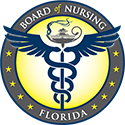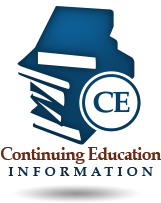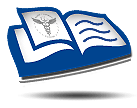The 2017 Florida Legislative Session produced several bills that will have some impact on the nursing profession moving forward.
The following is a breakdown of the new laws and their respective implications:
House Bills
HB 543 Regulation of Health Care Practitioners
Effective Date: June 23, 2017
Summary: This bill requires that an established protocol be maintained at the location or locations at which the Advanced Registered Nurse Practitioner (ARNP) practices. It also removes the requirement that the Board of Nursing review protocols. Those received prior to June 23, 2017 will be maintained on the ARNP’s’ practitioner profile; however, no new protocols will be posted on the website as of the effective date of the statutory change.
Some other highlights of the new legislation include:
- Authorization of the Board to conduct certain on-site evaluations of nursing education programs
- Removal of a requirement that certain nursing program graduates complete a specific preparatory course
- Clarification of circumstances when programs in probationary status must be terminated
- A mandate that accredited and non-accredited nursing education programs disclose probationary status
- The Board’s being allowed to adopt rules relating to the nursing curriculum
- Prohibition of a terminated or closed program from seeking program approval for a minimum of three years thereafter; Change of name does not reduce the waiting period
*Note: The Nurse Practitioner who applies for a Drug Enforcement Administration (DEA) registration should be prepared to submit a copy of the protocol via email or fax after the DEA has contacted you.
HB 229 Health Care Practitioner Licensure
Effective Date: May 31, 2017
Summary: The bill amends various provisions related to Department of Health impaired practitioner programs.
Section 456.076 (9) (a), Florida Statutes, requires the referral of a practitioner to the consultant operating an impaired practitioner program if the Department receives a legally sufficient complaint alleging an impairment and no other complaint exists.
Such an impairment will not be considered grounds for discipline if the practitioner:
- Acknowledges the impairment;
- Becomes a participant in an impaired practitioner program and successfully completes the participant contract;
- Voluntarily withdraws for practice or limits the scope of his or her practice, if required by the consultant;
- Provides to the consultant, or authorizes the consultant to obtain, all records and information relating to the impairment; and
- Authorizes the consultant, in the event of the practitioner’s termination from the impaired practitioner program, to report the termination to the Department and provide all information in the consultant’s possession relating to the practitioner
HB 101 Certificates of Nonviable Births
Effective Date: July 1, 2017
Summary: (For ARNPs) Cited as the Grieving Families Act. Amends Section 382.002, Florida Statutes, providing a definition of “nonviable birth.” Amends 382.008, Florida Statutes, authorizing the State Registrar of the Office of Vital Statistics of the Department of Health to electronically receive a certificate of nonviable birth.
In addition, certain health care practitioners and facilities are authorized to electronically file a registration of nonviable birth within a specified timeframe. The Department of Health is required to issue a certificate of nonviable birth within a specified timeframe upon the request of a parent, who is to be advised that the certificate is a public record with certain information exempt from disclosure.
Effective Date: July 1, 2017
Summary: HB 1121 permits hospitals licensed under Ch. 395, F.S. and physicians’ offices to release patient records to the Florida Department of Children and Families (DCF) for investigative purposes. DCF agents or representatives can now obtain records without written permission from the patient, but only when the information will be used to investigate cases of abuse, neglect, or exploitation that impact children and/or vulnerable adults.
The bill also requires mental health receiving facilities to initiate an involuntary examination of a minor admitted under the Baker Act; this examination must take place within 12 hours of arrival at the facility.
Senate Bill
Effective Date: October 1, 2017
Summary: The bill directs the Florida Board of Nursing to require two (2) hours of continuing education on human trafficking.
The course must be completed by nursing licensees for biennial renewals on or after January 1, 2019. All nurses are required to comply, including those who qualify for the existing exemption from continuing education in the Nurse Practice Act.
If you’d like to view all 2017 bills impacting health care professions, please go to https://www.flhealthsource.gov/2017-bills






